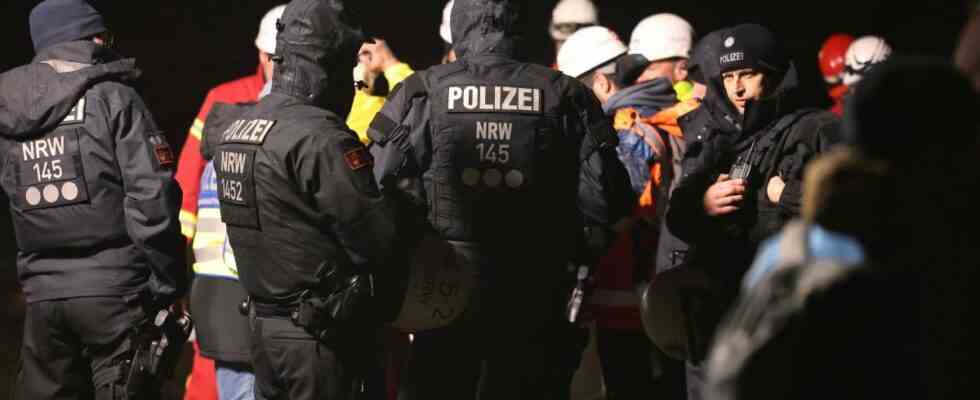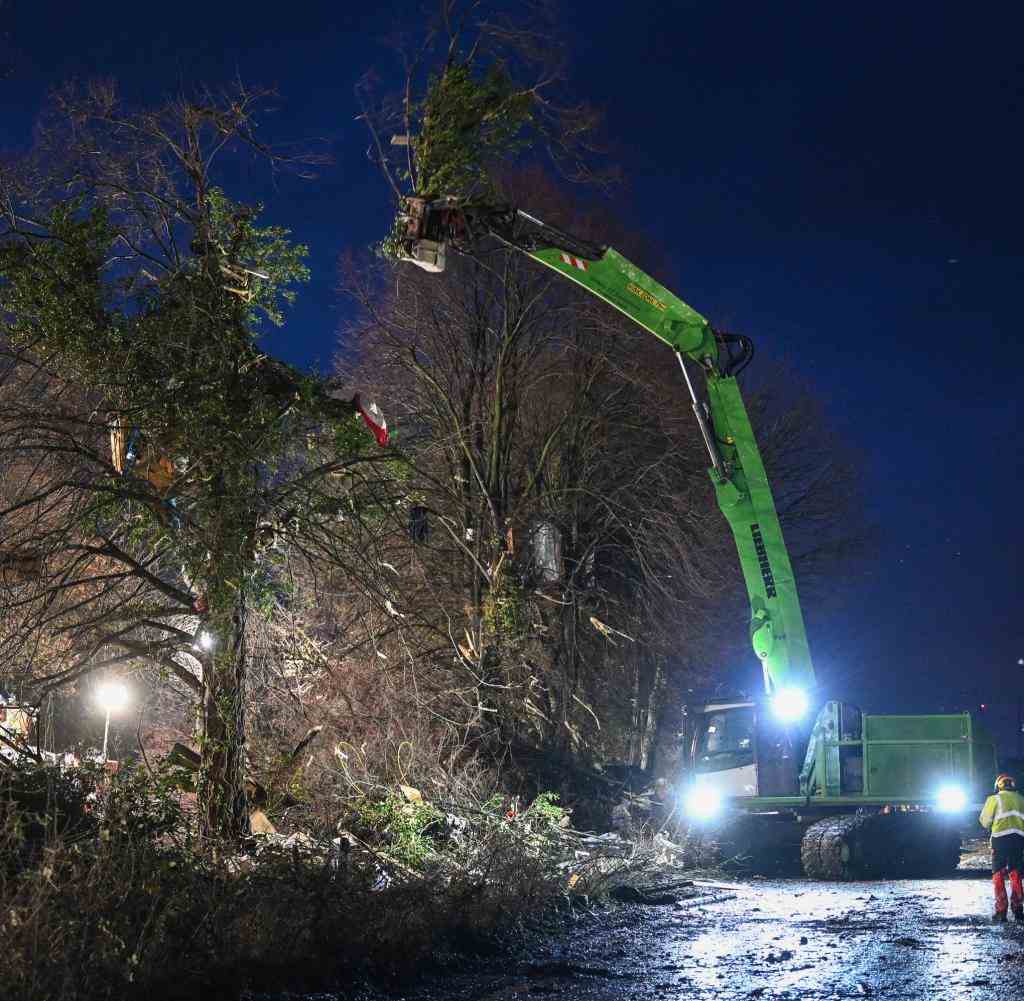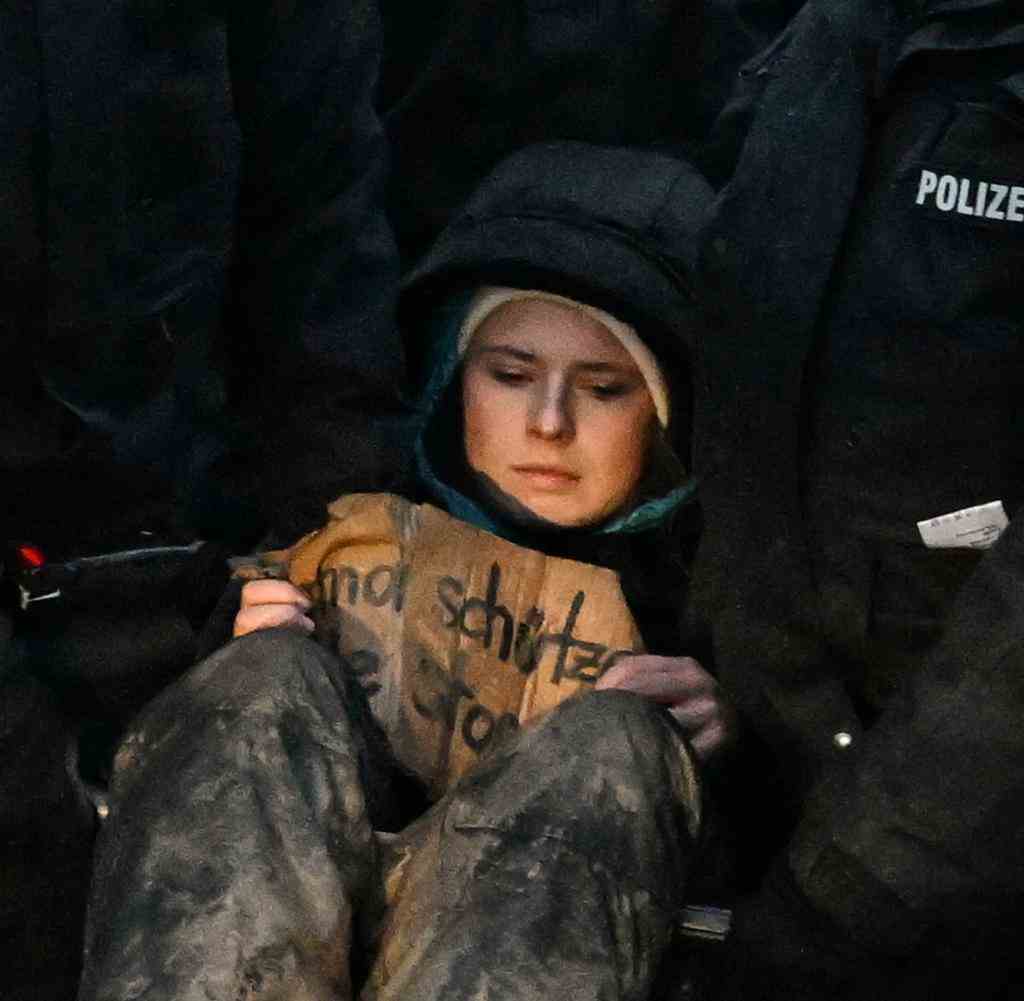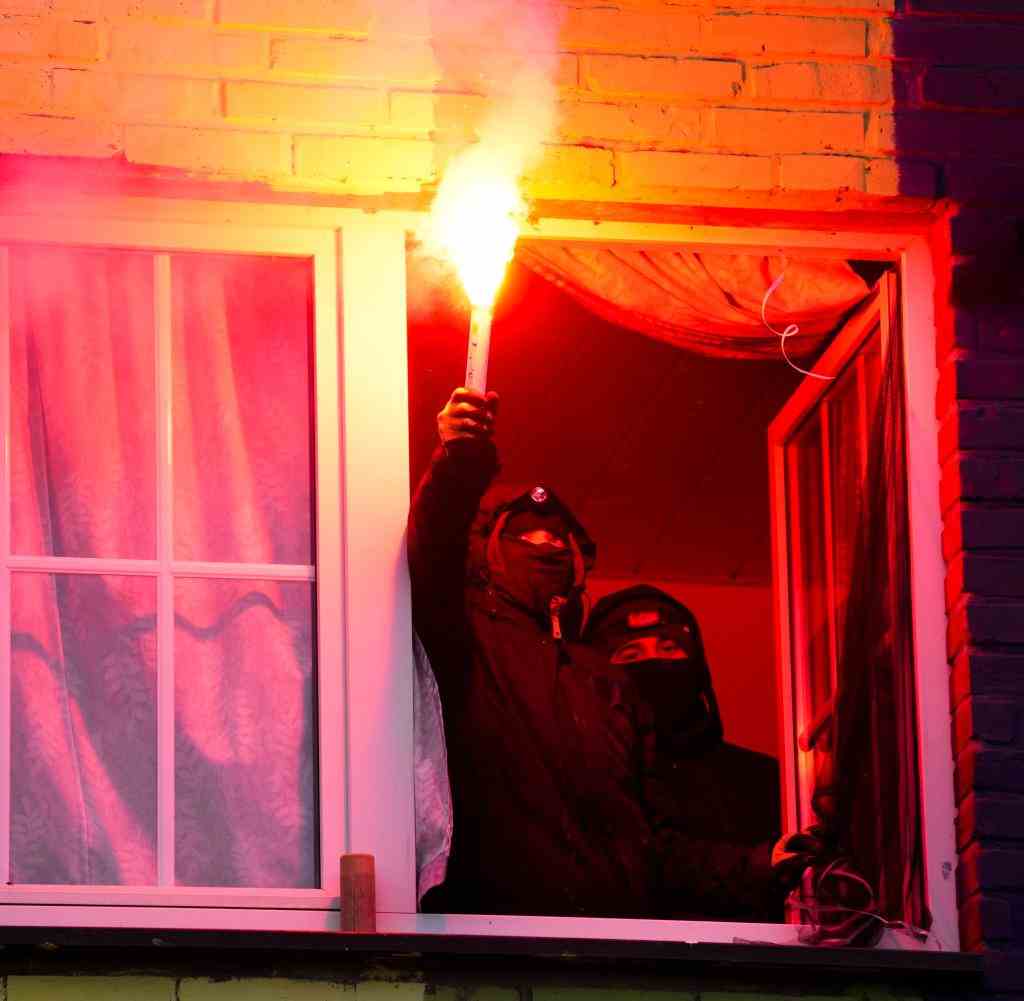THW mission fails – activists are still sitting in the tunnel
“You have to expect that extremist perpetrators will also be active here”
The clearing of the lignite mining area in Lützerath continues. “The police tactics have worked so far,” says the former interior minister of Lower Saxony, Uwe Schürmann from the CDU. At the same time, he praises the consistent actions of the officials.
When clearing Lützerath, the police encounter a problem: climate activists have hidden in a tunnel underground. The technical relief organization tried in vain to get them out on Friday night.
An the third day of the evacuation of Lützerath for lignite mining, the police are focusing on activists who have holed up in underground passages this Friday. “We don’t know how stable these underground soil structures are. We also don’t know what the air supply is like there,” said Aachen police chief Dirk Weinspach on Thursday evening on WDR. The situation is correspondingly dangerous.
On Friday night, the Technical Relief Agency ended its mission without getting the activists out of the tunnel. The occupiers of the place, which is to make way for lignite mining, had previously reported on social networks about a tunnel and warned the police not to drive into the area with heavy equipment.
Police confirmed there were at least two tunnels, one of which had activists. So far they have not been approached. Special forces from RWE and the Federal Agency for Technical Relief would now have to take care of “how the rescue can be carried out in a suitable manner,” said Weinspach. “It will also be important to proceed very carefully and not take any risks.” It is not foreseeable how much the clearance of the site could be delayed as a result.
Emergency services are standing in front of a building in which activists have holed up in a tunnel
Source: dpa/David Young
During the night, the climate activists held out on the surface of the earth in heavy rain, strong winds and temperatures below ten degrees. The police initially did not clear further. There were still numerous police officers on site. According to a police spokesman, however, they only wanted to become active at night when activists had to be freed from potentially dangerous situations.
Overall, the chief of police was satisfied with the progress of the operation. “The clearing of the above-ground structures is largely complete,” he emphasized on WDR. “We cleared almost all the houses except for one. The meadow has been cleared, most of the tree houses have been cleared. In this respect, there is not that much left.”
Usually not much resistance
On Thursday, numerous wooden huts and barricades belonging to the activists were razed to the ground by excavators. During the evacuation, the squatters usually allowed themselves to be carried away without much resistance. Some were close to tears. Two symbolic houses of the former residents of Lützerath were also cleared. There, fireworks flew in the direction of the emergency services, as a dpa reporter reported. One officer was slightly injured, according to police. However, the old houses in the village have not yet been demolished.
Even from the tree houses erected at a height of up to ten meters, squatters could be brought down by rescuers without much resistance. Police officers then cut the tethers so that tree houses crashed down and broke into many pieces, as a dpa reporter reported.
A tree that used to house a wooden house is sawn up on the second day of the eviction
Source: dpa/Henning Kaiser
On Thursday, police officers also carried away the climate activist Luisa Neubauer from the access road to Lützerath. Neubauer had gathered there with around 100 activists for a sit-in. The participants were surrounded by the police and gradually carried away or taken away. Finally, three officers carried Fridays for Future activist Neubauer away.
“We want to stay here until we are carried away,” Neubauer had previously told the German Press Agency. A police spokesman said the participants were on their way to the demolition edge. This was dangerous and had to be prevented by the police.
According to Neubauer, the police occasionally used pepper spray against activists. The spokesman said he could neither confirm nor rule it out. A total of several hundred people took part in a demonstration from the village of Keyenberg in the direction of Lützerath, about four kilometers away.
Environmental activist Luisa Neubauer is carried away by police officers during a sit-in
Source: dpa/Federico Gambarini
Activists in Lützerath stand at the window of a house with torches
Source: AP/Michael Probst
During the night of Friday, the evacuation initially continued in the dark. “Objects that have been addressed are still being processed,” said a police spokesman. Activists who had cemented themselves in or chained themselves were also freed despite the darkness. “In such cases, we have to provide help,” said the spokesman.
RWE wants to mine the lignite that lies beneath the village of Lützerath, which has long since been abandoned by the residents. The coal is needed to save gas for power generation in Germany during the energy crisis, the group argues. The activists deny that. In exchange for the fact that politicians paved the way for the mining of lignite under Lützerath, the coal phase-out in NRW was brought forward by eight years to 2030.
“Kick-off Politics” is WELT’s daily news podcast. The most important topic analyzed by WELT editors and the dates of the day. Subscribe to the podcast at Spotify, Apple Podcasts, Amazon Music or directly via RSS feed.




